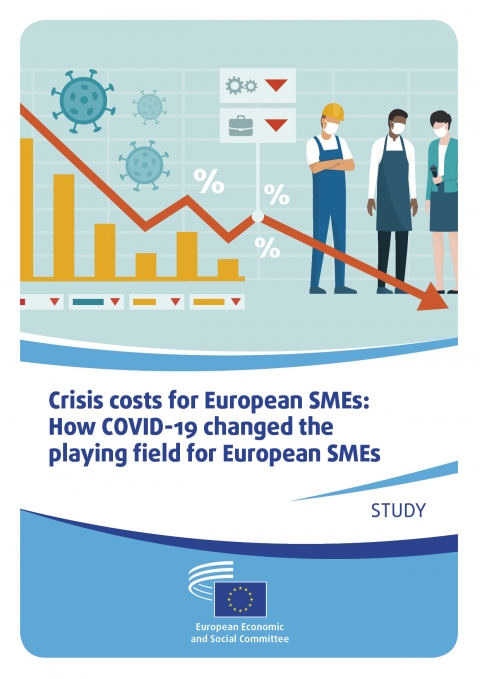On December 2022, the European Economic and Social Committee has officially published the study “Crisis Costs for European SMEs – How COVID-19 changed the playing field for European SMEs“.
The research is the product of a joint partnership led by Wise Angle in collaboration with SHINE 2Europe in collaboration with the International Network for SMEs (INSME).
According to the study rationale, the advent of the COVID-19 pandemic has become the landmark for one of the greatest recessions ever experienced. As such, Small and Medium Enterprises (SMEs) were not exempt from dramatic financial and employment-related losses. However, not all industry sectors suffered the same negative rates of income or job disruptions and there is still limited evidence on the matter. In addition, the unexpected invasion of Ukraine from Russia at the end of February 2022 became the trigger for a new wave of generalised economic crisis for all business sectors and sizes.
Therefore, the objective of this study has been to develop a systematic classification of COVID-19 (and international crisis)-related impacts on SMEs. It also included an identification of “winning” or “losing” adaptation factors displayed through crisis management. The study developed an explanatory framework by generating six categories of “pandemic challenge areas” (containment measures; workforce; finance; digitalisation; public assistance and European diversity) and a targeted performance analysis for SMEs in 6 industry sectors (Manufacturing, Construction, Research & Innovation, Tourism, Agri-Food, Retail) over an EU-12 sample of countries. Its conclusions have been meant to provide support to policy-making for recovery and competitiveness of SMEs against an uncertain economic scenario for the foreseeable future.
Over the course of one year, staff from the two organisations delved into multiple research methodologies (systematic & scoping literature reviews, qualitative fieldwork with 36 semi-structured interviews, quantitative data gathering and re-elaboration of EC/national SME data) to secure updated results and feasible solution-formulas for the sake of the European small and medium enterprises landscape.
The Research Team is glad for the intellectual challenge provided by study development and is especially grateful to all those stakeholders who contributed their voice and statements to the realisation of this enquiry. Most importantly, the researchers hope that the findings may be of high use to institutions, stakeholders and even individual businesses alike.



